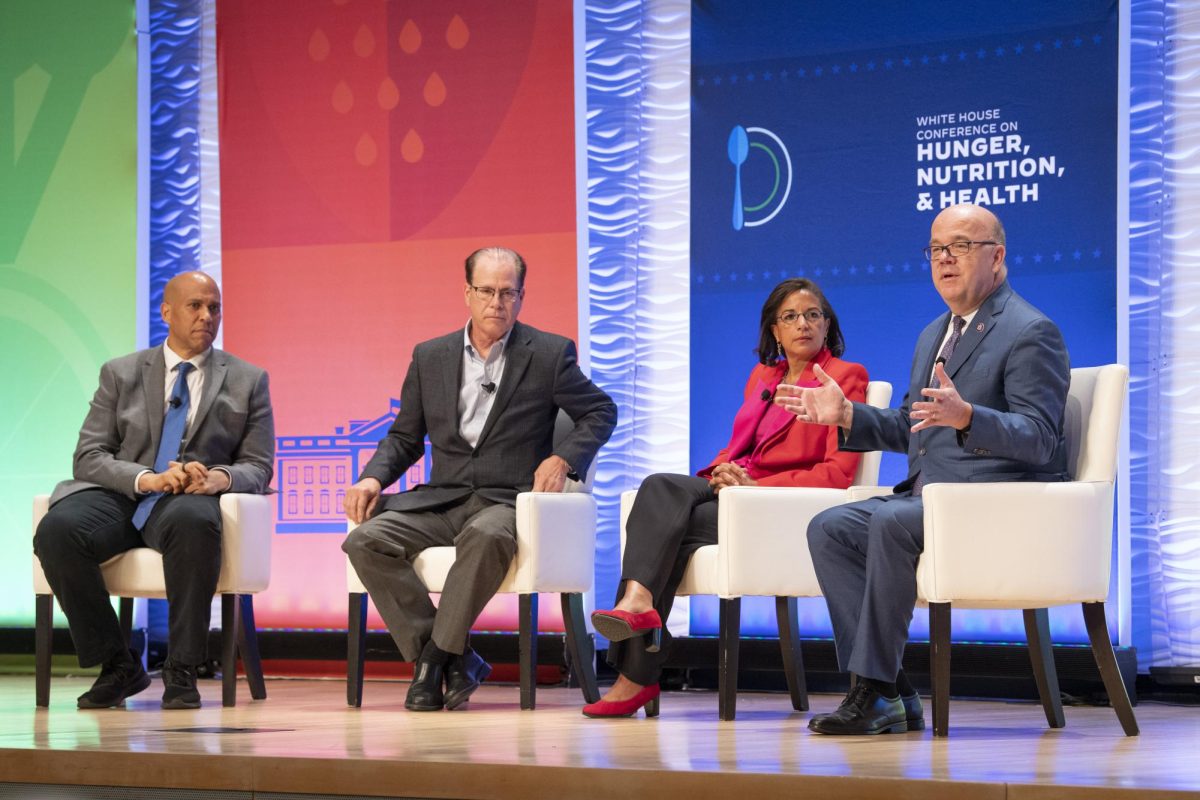As a result of the United Nations’ lack of ability to stop the war with Iraq, it is said that the UN is an inefficient organization. With the inability to join consensus to come together and put an end to the chaos in Iraq, the UN is an institution that merely stands as a mirage — an elusive, unrealistic ideal that bears no real power or significance in modern day politics.
However, the validity of these accusations is extremely questionable. Over the course of the last year the UN has been under a lot of scrutiny, but with over 61,000 staff members and offices all over the world, there has to be more to this institution than what we hear about in the media. In fact, there is more, a lot more, and I can attest to that through my time spent there on co-op.
In today’s world the successes of the UN can easily be overlooked in consequence of all of the harsh criticisms that have put a damper on the esteem of the organization. However, believing these criticisms is essentially like looking at the UN with your eyes closed.
Just by simply opening a book about the UN, logging onto its Web site, or visiting the headquarters in New York, you’ll quickly realize that the UN does so much more than what it is given credit for and its relevance in society today is more significant than ever.
Housed deep inside the foundations of the United Nations lays the greatest aspiration for mankind — world peace. In its efforts to foster multilateral cooperation among countries, the UN brings the whole world together in one building and provides an international forum that promotes collective decision-making on global policies. In addition to creating a set framework of standards by which the world should be governed, the UN serves as a catalyst to inspire the leaders of our world to make the right decisions and inform them of the urgent need for all nations to work together to build a more prosperous and sustainable future for all of us.
Serving in its capacity as a mediator in the international community, throughout its history the United Nations has taken tremendous strides to improve the state of our world by playing a vital role in numerous conflicts.
For example, the UN played an important role in ending the conflict between Iran and Iraq (1988), in the war in the Congo (1964) and in the withdrawal of Soviet troops in Afghanistan (1989). In 1995, it played a major role in ending apartheid in South Africa and helped the country to establish a democratic, non-racial form of government. The organization has also been instrumental in helping to secure peace in many countries such as Cambodia, El Salvador, Guatemala, Mozambique and in the former Yugoslavia, in addition to defusing dangerous crises such as in Berlin (1949), Cuba (1962) and the Middle East (1973).
The UN has even helped over 80 former colonies become free and independent countries. Aside from aiding in the mitigation of hostile conflicts, there is a subtler dynamic underlying the core of the United Nations that tends to be overlooked — the progress that it has made in terms of humanitarian assistance and development. Each time there is a flood or an earthquake, the UN sends immediate emergency help to those in need. Refugees who flee their homes to escape war are able to find shelter within the UN Currently, the organization is helping over 22 million refugees around the world.
Furthermore, through its tireless efforts there have been over 30 million land mines destroyed and over 1.3 billion people now have safe drinking water. Also, in addition to saving over 3 million children each year by providing immunizations, the UN is spearheading the global campaign to find a cure for AIDS.
These few examples help to illustrate just how profound of an impact the United Nations has on the world, but by living in the most developed and powerful country, the relevance of this institution to your life may not be apparent. However, through the work of the UN and its family of organizations, every one of us benefits. For example, the food we eat is safer because it is produced under the standards for food additives created by the Food and Agriculture Organization of the UN.
Thanks to the rules and regulations set up by the International Civil Aviation Organization of the UN traveling by plane is safer today. Through the work of the World Health Organization of the UN, our health is better protected as the organization fights against infectious diseases. Also, ensuring safe working conditions and establishing rules to protect the rights of workers are set up by the International Labor Organization of the U. Moreover, forecasting the weather is more accurate and even when you make an overseas telephone call or watch the Olympics on television, the International Telecommunications Union of the UN helps to make the connection possible.
Finally, one of the most significant ways that the organization helps all of us, especially students and researchers, is by providing us with statistics. The UN provides the world with the most reliable statistics available on food, health, population and many other areas of human activity.
In essence, no matter where you live or what you do, the UN is playing an important role in your life. The true value of the United Nations today is immeasurable. The potential housed within the walls of the UN buildings is enormous, and ways of harnessing that potential to have a greater impact on society are being uncovered and analyzed everyday. The sole purpose of the UN is to improve the state of our world, and through its persevering efforts every one of us inherently benefits.
— Monika Fidler is a sophomore international affairs major.








